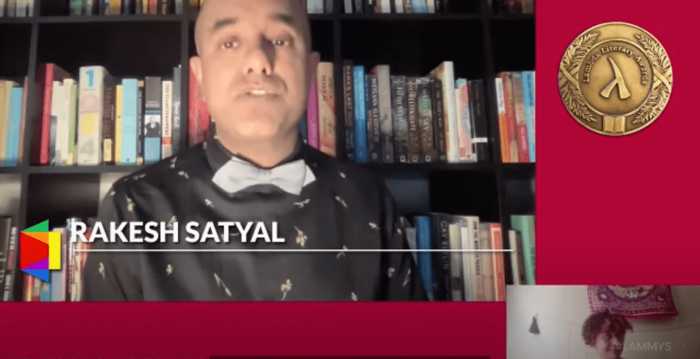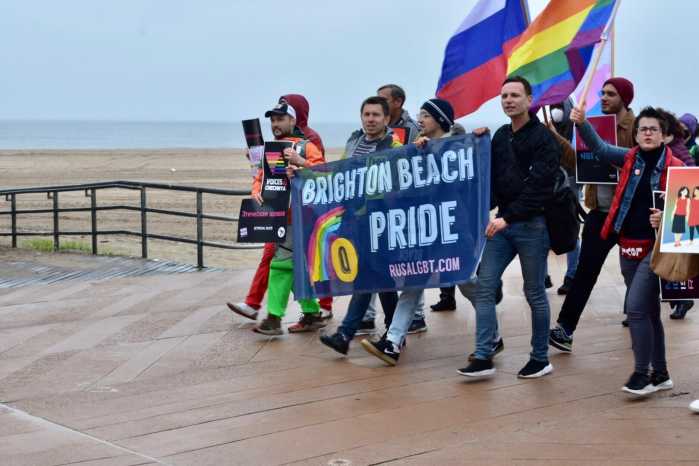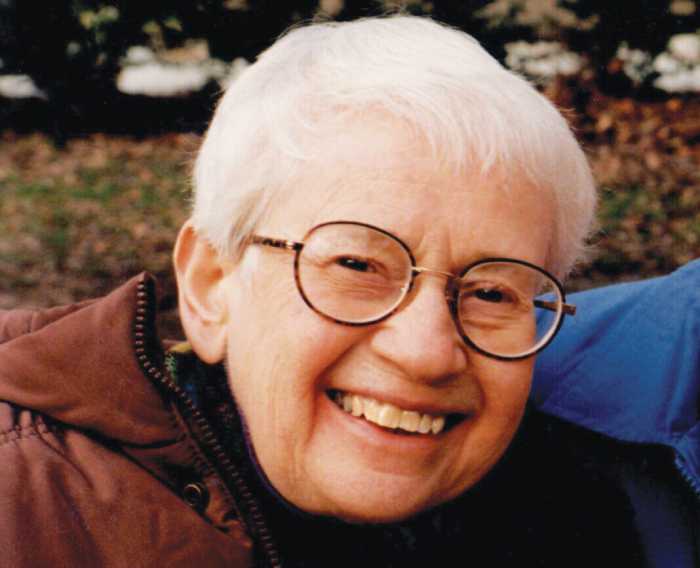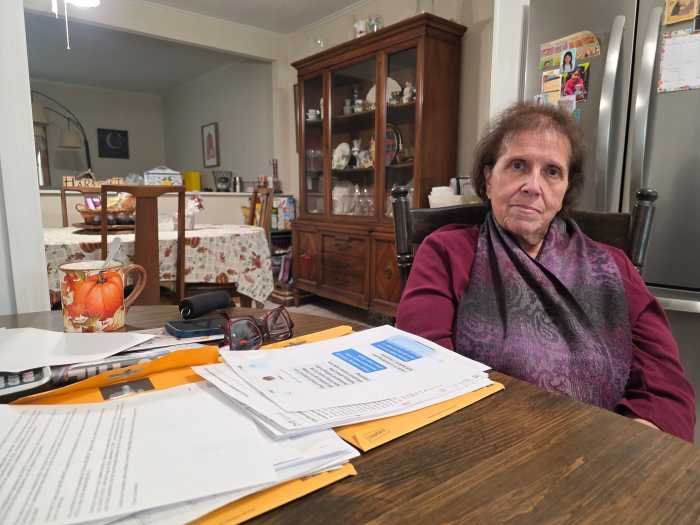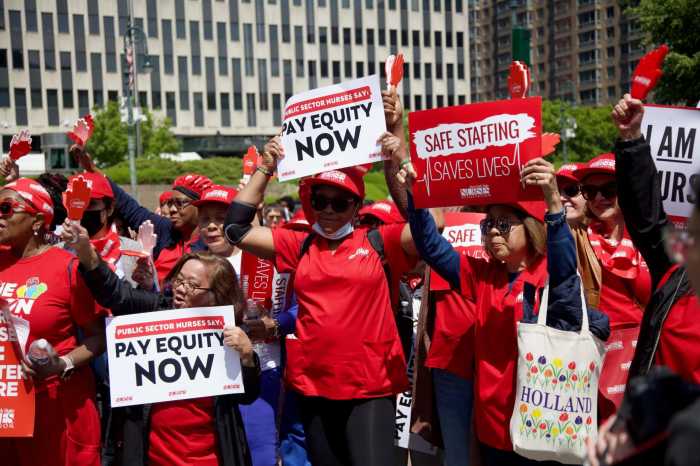The American artist Audre Lorde was a “Black, lesbian, mother, warrior, poet,” a “sister outsider” and a native New Yorker. She was also a product of the New York City public school and City University of New York (CUNY) system and considered Hunter College a home.
Hunter College returned the favor to one of its most distinguished alumna on May 9 by renaming the corner of 68th St. and Lexington Avenue “Audre Lorde Way.”
Lorde graduated from Hunter College High School, Hunter College, and became a distinguished professor at her alma mater, where she taught the students of New York City, many of whom now teach their own students and continue to share her voice, words, and spirit.
A crowd of students, friends, scholars, literary lions, and lionesses gathered in the lobby of Hunter College to attend a celebration and ceremony featuring some of the college and community leaders who had worked to literally change the map of the city to add Lorde’s name.
Hunter College President Jennifer Raab welcomed the assembled, and New York City Council Member Keith Powers (Hunter College, ’10) talked about how much Hunter means to the city.
NY1 Anchor/Journalist and author Cheryl Wills was the MC of the program, and the crowd fell silent as they listened to a recording of Lorde performing her poem, “For Each of You.” Lorde’s voice rang out, finishing with the lines: “Speak proudly to your children/where ever you may find them/tell them/you are offspring of slaves/and your mother was/a princess/in darkness.”
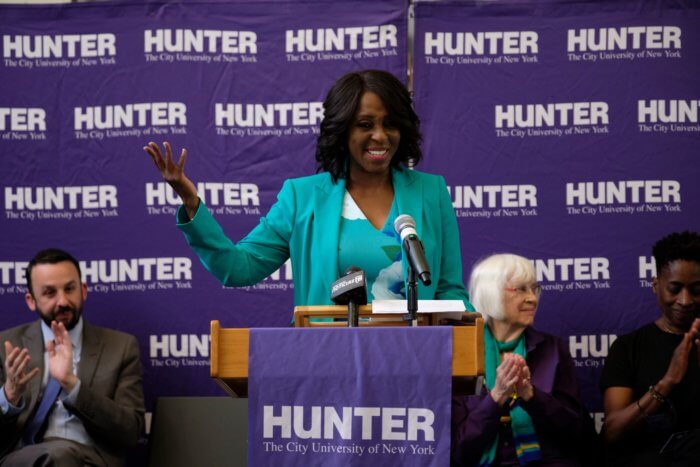
Acclaimed author Jacqueline Woodson took the podium on publication day of her 37th book.
“At least 20 of [my books] would not be here without Audre Lorde,” Woodson said.
She related how her older sister came home from Hunter College High School to tell her about the poet who had gone to her school. Woodson researched Lorde and learned about the “lesbian, activist, poet, mother…and thought: you can do THAT? Audre Lorde made a way out of no way, showing the way for those who came after.”
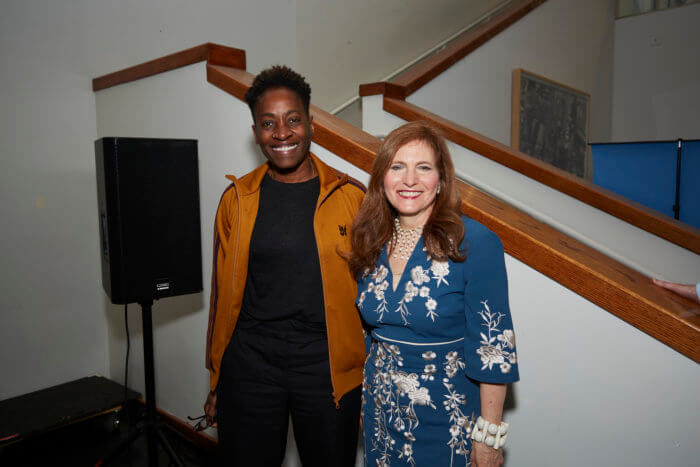
Dr. Elizabeth Lorde-Robbins, M.D., one of Lorde’s two children, who was on call and unable to attend the ceremony, sent greetings to the crowd via two Lorde family friends, biographer Blanche Wiesen Cooke (Hunter College ’62) and historian and playwright Clare Coss. Cooke and Coss both wore necklaces made for them by Lorde and noted that their collection of Lorde’s handmade jewelry will go to Spelman College, which houses the Audre Lorde Papers.
“Although it’s been decades, I remember how thrilled Audre was to teach at Hunter,” Cooke said. “The beginnings of her scholarship were at Hunter High. I think how extremely proud and grateful she would be to see the corner of 68th and Lexington named for her.”
“She loved Hunter. She loved to teach,” Coss added.
Hunter professor Melinda Goodman, who said she’d come to Hunter on Lorde’s recommendation, got the crowd to respond to the call and response of : “I am…” “Are you…!” in Lorde’s poem “Now,” and the crowd chanted “I am! Are you? READY!”
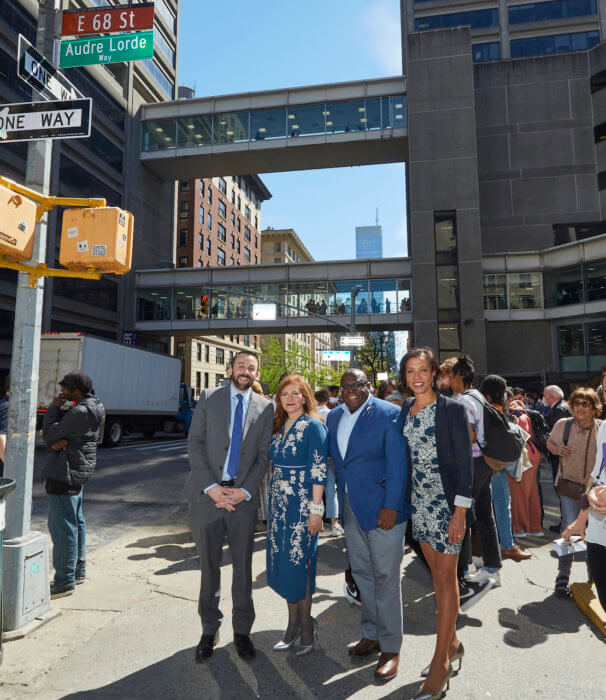
Goodman thanked Lorde for her service, addressing her as “Gamba Adisa,” her African name, which means ”She who makes her meaning clear.”
Professor Jacqueline Nassy Brown studied with Audre Lorde at Hunter College (where she is now a professor of Anthropology) and led the drive at the school to have the corner named for Lorde.
“This sign and its placement is so poetic,” Brown said. “Audre will now preside over all we do in this place. And it’s over the subway, which is how we all get here.” Brown spoke of how she stayed in touch with her Hunter teacher after she went on to graduate school at Stanford, and how when Lorde came to do a reading there, read through an earthquake that shook the hall. As an encore, a student asked her to read one of her older poems, and Lorde chose “Coal,” and said: “Jackie, this is for you.”
The program concluded with a reading by four 2022 Roosevelt House Eva Kasten Grove Scholars — students who are committed to public service, public policy, and human rights. They chose to read from Lorde’s essay “There is no hierarchy of oppressions.”
“From my membership in all of these groups I have learned that oppression and the intolerance of difference come in all shapes and sexes and colors and sexualities; and that among those of us who share the goals of liberation and a workable future for our children, there can be no hierarchies of oppression. I have learned that sexism and heterosexism both arise from the same source as racism.
“Within the lesbian community I am Black, and within the Black community I am a lesbian. Any attack against Black people is a lesbian and gay issue, because I and thousands of other Black women are part of the lesbian community. Any attack against lesbians and gays is a Black issue, because thousands of lesbians and gay men are Black. There is no hierarchy of oppression. I cannot afford the luxury of fighting one form of oppression only.
“I cannot afford to believe that freedom from intolerance is the right of only one particular group. And I cannot afford to choose between the fronts upon which I must battle these forces of discrimination, wherever they appear to destroy me. And when they appear to destroy me, it will not be long before they appear to destroy you.”
Some people went up to the bridge between the Hunter buildings to watch the unveiling of the sign, and some went out to stand beneath it. They gathered in groups to talk about what they’d seen, and what they remembered, and who it was all for.
“Audre taught me how to live, she gave me my life,” said poet Donna Masini, a Hunter College graduate and professor in the Hunter MFA program in Creative Writing.
All around were the people Audre Lorde knew and taught, and the people her students taught, and the people who will come and go by subway at 68th and Lexington, the Hunter College stop at Audre Lorde Way.



